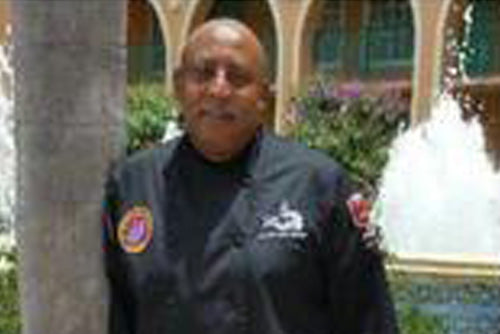Recently, BLiS Vice President and Director of Operations, Sarah Sherman, had the opportunity to visit the Lakeland Correctional Facility and spend the day in the classroom with the Food Technology students. BLiS has been donating product for use in the classroom. Sarah was able to share the BLiS story with the students, and the students shared a BLiS inspired 5 course meal with her.
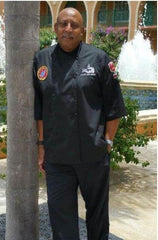 The Food Technology Program at the Lakeland Correctional Facility has set its sights not only on rehabilitating inmates but taking it a step further turning them into tomorrow's “Top Chefs”.
The Food Technology Program at the Lakeland Correctional Facility has set its sights not only on rehabilitating inmates but taking it a step further turning them into tomorrow's “Top Chefs”.
The man behind this unique program is Award Winning Executive Chef Jimmy Lee Hill. Chef Hill and his program has been the subject of newspapers, magazines, and talk radio [visit www.hourdetroit.com article entitled “Raw Talent,” dated December 2016].
When you think of fine cuisine I’m pretty sure prison doesn’t come to mind but the future is bright for those who participate in this program and return to society with the skill set to run their own restaurant and/or take charge of one.
The Program consist of five tiers:
Tier 1: American Hotel & Lodging Educational Institutes S.T.A.R.T Program designed to provide students basic skills and knowledge as to areas of the lodging properties and revenue centers, and job opportunities.
Students enrolled in this program have up to two weeks to complete four packages of materials and pass Chef Hill's Test with 85%, then they have an additional two weeks to study for National Certification from the American Hotel & Lodging Educational Institute.
Students cannot get to the National Test without first passing the in-house test prepared by Chef Hill.
Tier 2: ServSafe Manager Program establishes National Standards for Food Safety and Proper Food Handling.
This Program is a National Certification and administered by the National Restaurant Association Educational Foundation. (Chef Hill is a Certified Proctor for four National Restaurant Educational Foundation programs, ServSafe, Foodhandler, ServSafe Alcohol, and the ManageFirst Programs) Standards now require at least two persons on every shift in a restaurant or food service operation be ServSafe certified.
The timelines are much the same as in tier 1, two weeks to complete two packages materials, then students have to pass with an 85% on their Quiz and Test developed by Chef Hill.
Students who may have a hard time with the program may opt out and be done with the completion of Tier One. Chef Hill is serious about those who want to learn in the Culinary Field and by the end, Tier One will weed out those who are not serious. If a student misses a scheduled National Test, they will be removed from the program!
Those who want to learn are given an extraordinary opportunity to learn from him.
Tier 3: National Restaurant Association's Foundations of Restaurant Management, Culinary Arts, and Culinary Math sections 1-6.
Students are given 20 days to Complete the Math Section and a Skills Test. For some we recognize math may be difficult but in order for a student to complete this course they must have basic skills for the workplace and must know the difference between weights and measures, and be proficient in teaspoons, tablespoons, cups, pints, quarts, and gallons.
Recipe Conversion Factors (RCF), Yielding Recipes and portion control are the beginning of understanding the science of the Business of Food.
The Foundations of Restaurant Management and Culinary Arts, Level One, expand on the importance of Food Safety, Basic Knife Skills and How the Kitchen is organized.
Tier 3 also Introduces the student to basic management skills, cooking techniques, and understanding how to use tools and equipment for the kitchen.
This is essential to completing the program.
Students have up to an additional 30 days, (50 days total) to complete two packages of materials and passing their in-house test with an 85%.
Those who meet their goals move on to Tier 4.
Tier Four: Foundations of Restaurant Management and Culinary Arts, Level Two and Culinary Math 7-12 expand on prior learning and start with Math Sections 7-12.
Math in this section(s) allows students to revisit what they have learned prior to this tier combined with the focus on recipe food costs, and portion control.
Students are required to learn how to monitor all facets of the foodservice operation with an understanding that it takes a team effort to manage food cost and menu operations to best optimize their profit potential.

A math skills examination is required prior to moving on to the Level 2 Foundations of Restaurant Management and Culinary Arts.
The Foundations of Restaurant Management and Culinary Arts give students the business and culinary skills necessary for placement in the industry further exposing them to the world of fine cuisines and various cooking styles.
Chef Hill also requires his students to complete lab activities that test their competency in various skill sets within a specific time limit:
- Poultry Fabrication
- White Stock
- Beef Stock
- Velouté-Fish Stock
- Chicken Stock
- Vegetable Stock
- Béchamel Sauce
- Velouté Sauce
- Espagnole (Brown Sauce) Sauce
- Tomato Sauce
- Hollandaise Sauce
- Fillet a Fish
- Creaming Method Cake
- Foaming Method Cake
- Blending Method Cake
- Mayonnaise from scratch
- Basic French Dressing
- Cookies (Rolled Method)
- Cookies (Drop Method)
- Cookies (Ice Box Method)
In addition to structured learning, the Saffron Cafe hosts gourmet meals for staff and visitors to the facility twice a month. Meal service allows students to rotate in six-week cycles to get hands-on experience in meal preparation and service in the following areas:
- Sanitation
- Bakery
- Salads/Appetizers
- Entree Preparation
- Table Service
 Students who complete the program with a desire and passion for this field may be one of the fortunate ones personally selected by Chef Hill to stay on as program tutors.
Students who complete the program with a desire and passion for this field may be one of the fortunate ones personally selected by Chef Hill to stay on as program tutors.
Tutors assist the Chef while gaining additional skills and training by participating in learning opportunities as Pastry Chef, Garde Manger, Maître de hotel, Sous Chef, and mentors for students who are assigned to the program.
Saffron Café Contributors: Gary F.F. Baublitz, Garde Manger and Ernest J. Davis, Sous Chef
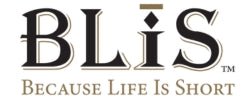
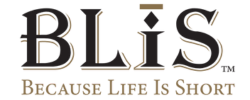
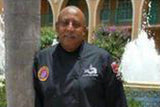 The Food Technology Program at the Lakeland Correctional Facility has set its sights not only on rehabilitating inmates but taking it a step further turning them into tomorrow's “Top Chefs”.
The Food Technology Program at the Lakeland Correctional Facility has set its sights not only on rehabilitating inmates but taking it a step further turning them into tomorrow's “Top Chefs”.
